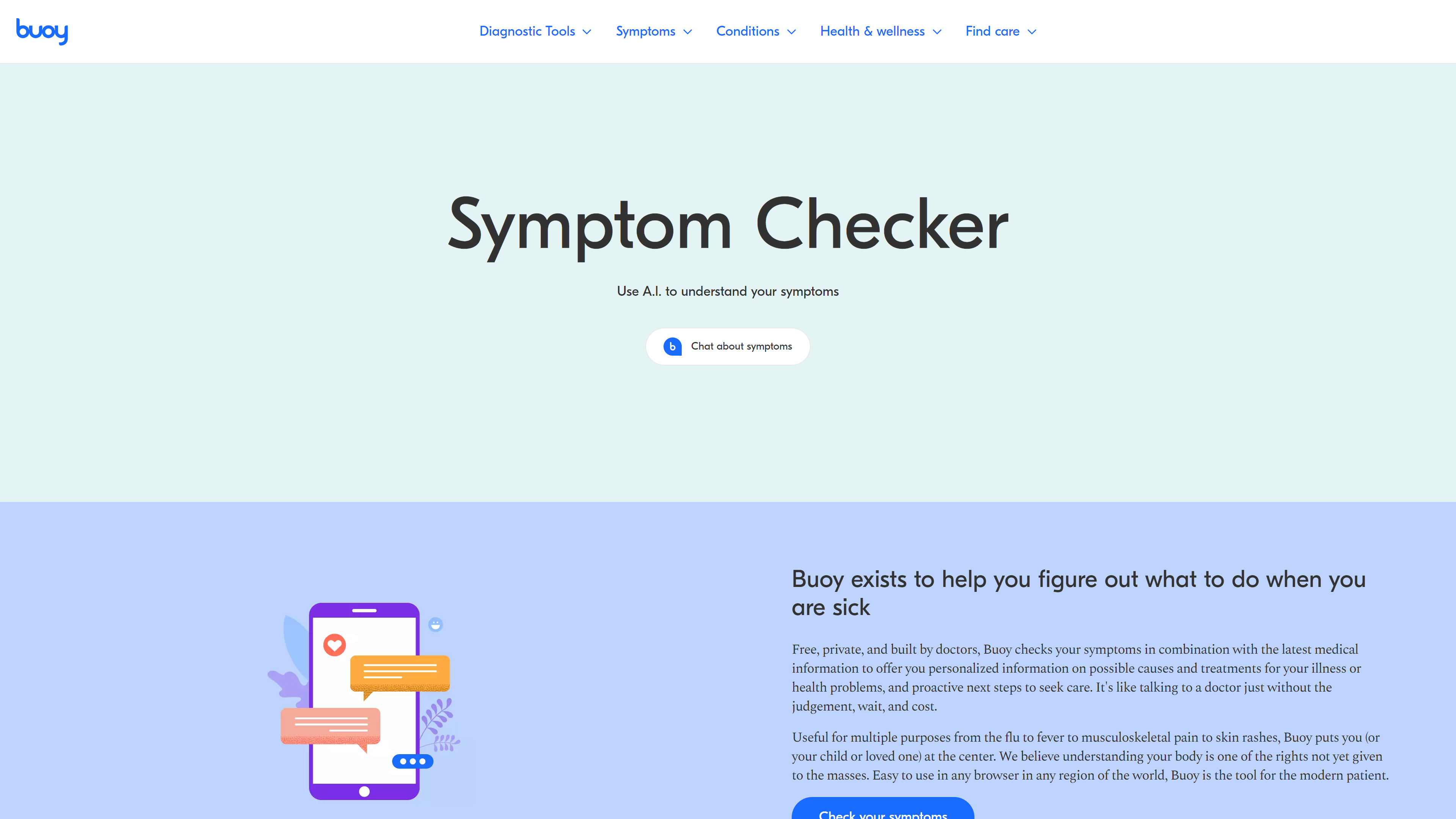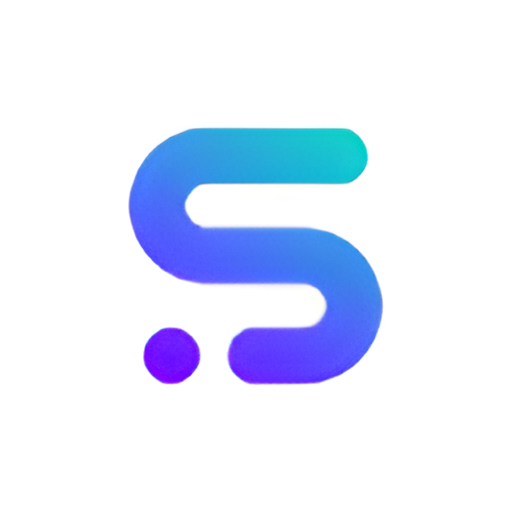Overview
Buoy is an innovative AI-powered tool designed to assist individuals in understanding their health symptoms and determining the appropriate steps for care. Utilizing advanced AI algorithms and informed by extensive medical research, Buoy offers a personalized symptom checker that evaluates a user's symptoms against a vast database of medical knowledge. This process helps to pinpoint potential causes and suggests suitable treatment options, thereby reducing the uncertainty often associated with self-diagnosis.
The platform guides users through a detailed questionnaire, enhancing the accuracy of its assessments and ensuring tailored health advice. Buoy's effectiveness was notably demonstrated during the COVID-19 pandemic, where it provided crucial screening support and was recognized for its contributions to public health.
Accessible globally, Buoy covers a wide array of symptoms and conditions, making it a versatile tool for individuals of all ages seeking to better understand their health issues. The website also provides insights into how the tool works, maintains high editorial standards, and introduces the expert team behind the service. While Buoy empowers users with valuable health information, it also emphasizes the importance of professional medical consultation. This tool is a comprehensive resource for anyone looking to navigate their health care options intelligently and responsibly.
Key features
- AI-powered symptom checker: Utilizes advanced algorithms and extensive medical databases to analyze symptoms and provide personalized health insights.
- Interactive questioning: Guides users through a detailed questionnaire to accurately understand and interpret their health concerns.
- Localized health recommendations: Offers tailored advice based on user location, ensuring relevant and practical healthcare guidance.
- Comprehensive symptom coverage: Capable of assessing a wide array of symptoms from common ailments to rare diseases, suitable for all age groups.
- Partnerships for public health: Collaborated with organizations for initiatives like free COVID-19 screenings, enhancing community health support.
- Resource-rich platform: Provides extensive information about the tool's functionality, editorial integrity, and the expert team behind its development.
 Pros
Pros
- Privacy and security: Ensures user data is protected with high-level encryption and compliance with privacy laws, making personal information safe and secure.
- Real-time updates: Continuously updates its database and algorithms based on the latest medical research and health trends to provide current information.
- User-friendly interface: Designed with simplicity and ease of use in mind, allowing users of all technological skill levels to navigate the tool effectively.
- Integration capabilities: Can be integrated with other health apps and systems, allowing for a seamless health management experience across platforms.
- Multi-language support: Available in several languages, making it accessible to a broader audience and helping non-English speakers to use the tool effectively.
 Cons
Cons
- Limited user interaction: While the tool guides users through a questionnaire, it lacks real-time interaction which might affect the user's engagement and accuracy of the input.
- Dependence on self-reporting: The accuracy of the results heavily relies on user's ability to accurately report symptoms, which can sometimes be subjective or incomplete.
- No immediate medical treatment: The tool provides health insights and recommendations but cannot offer immediate medical treatment or emergency services.
- Potential data privacy concerns: Collecting and analyzing health data might raise concerns about the security and privacy of sensitive personal information.
- Limited diagnostic capability: Despite comprehensive symptom coverage, the tool cannot replace professional medical diagnosis or capture the nuances of a face-to-face consultation.

















